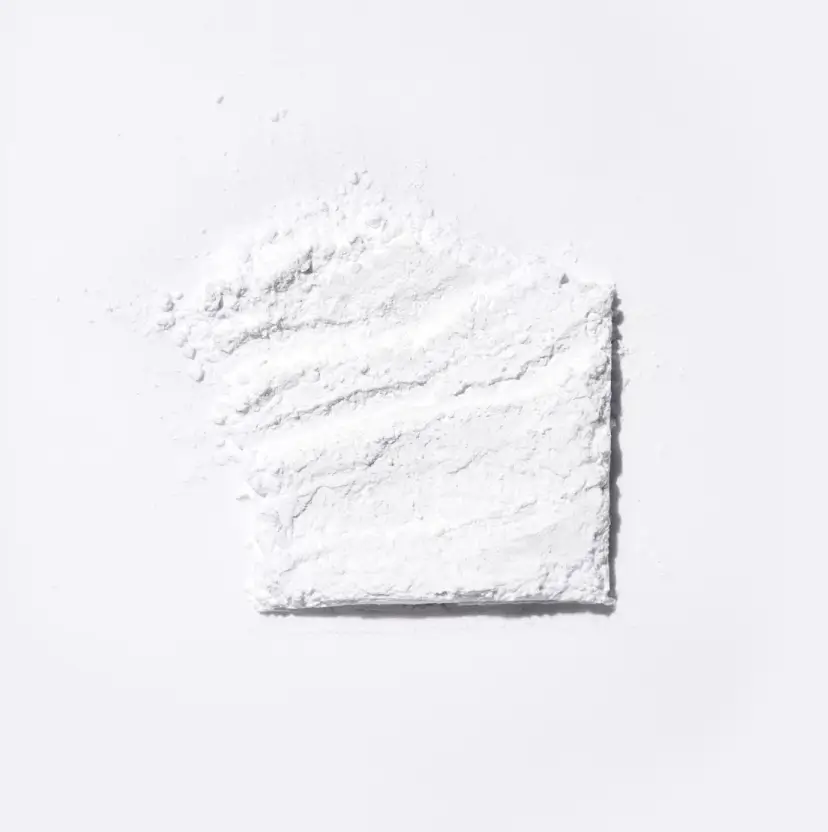Magnesium Glycinate and magnesium citrate are two of the most popular types of minerals that support numerous body functions. As each offers unique benefits, when comparing Magnesium Citrate vs Magnesium Glycinate, the right choice will depend on your health goals, digestive tolerance, and absorption rate!
When it comes to absorption it is known for its high absorption rate, making it one of the most efficient. This amino acid is also known for its calming effects. Magnesium Glycinate promotes relaxation helping with stress, and anxiety and improving sleep quality. It also supports muscle and nerves, reducing muscle cramps, and tension and improving overall nerve health. Unlikely to cause digestive discomfort or diarrhea, Magnesium Glycinate is very gentle on digestion.
On the other hand, Magnesium Citrate, formed by combining magnesium with citric acid, has a good absorption rate. Acting as a mild laxative, Magnesium Citrate is useful for constipation relief. It also supports muscle function, enzyme activity, and cardiovascular health.
Key differences: Magnesium Glycinate vs Citrate
|
Factor |
Magnesium Glycinate |
Magnesium Citrate |
|
Absorption rate |
Excellent. High-absorption |
Good absorption |
|
Primary Benefit |
Relaxation, sleep, muscle recovery. |
Digestive support, constipation relief |
|
Digestion |
Easy on the stomach |
Can cause loose stools |
|
Laxative Effect? |
No |
Mild to Moderate |
|
Best for |
Anxiety, sleep, muscle health |
Digestion, constipation, general wellness |

What is Magnesium Citrate?
Magnesium citrate is a highly absorbable form, created by combining magnesium with citric acid, a natural compound found in citrus fruits. This combination makes magnesium citrate one of the easiest forms for the body to digest and use.
Its most common use is for digestive health, as it acts as a natural gentle laxative, drawing water into the intestines to promote regular bowel movements. For this reason, it is often used to relieve occasional constipation while supporting overall gut function.
Other benefits of Magnesium Citrate are associated with metabolic health, as it is involved in hundreds of biochemical processes that help regulate energy production, and blood sugar levels, enhancing overall metabolic function.
Magnesium citrate supplements also play an important role in bone health. It is an essential mineral in bone formation and density, helping to maintain healthy bones. Working alongside calcium and Vitamin D Magnesium Citrate keeps bones strong and reduces the risk of osteoporosis.
Why Does the Body Absorb Magnesium Citrate easily?
Compared to other types of magnesium, this one dissolves well in water, making it more bioavailable which allows it to be quickly and efficiently absorbed in the intestines. This high solubility ensures that more magnesium enters the bloodstream, making it an effective option for people seeking for a reliable supplementation.
Additionally, the presence of citric acid enhances absorption by creating a more acidic environment in the digestive tract which helps the body break down and utilize magnesium more efficiently.
Because of its superior bioavailability, it is often recommended for individuals who struggle with magnesium deficiencies. It allows the body to replenish magnesium levels while supporting its digestion, muscle function, nerve health, and energy production.
So, Magnesium Citrate is an excellent option for individuals seeking to improve digestion while also supporting bone health and metabolic function.
What is Magnesium Glycinate?
Magnesium Glycinate is a well-absorbed form where the mineral is bound to glycine, an amino acid known for its calming effects. This combination allows gentle absorption making it easier on the digestive system compared to other types.
Magnesium Glycinate is widely used for its calming and relaxing properties. It helps to improve sleep quality, by regulating neurotransmitters that promote relaxation making it an excellent choice for people seeking to improve sleep quality and reduce insomnia.
Another of the major benefits of Magnesium Glycinate is that it supports heart health. It plays a vital role in maintaining normal blood pressure, promoting good circulation, and regulating heart rhythm.
Glycine also has a calming effect on the nervous system that helps to reduce stress and anxiety, supporting emotional balance. Additionally, it supports muscle relaxation preventing cramps, while helping with overall nerve health.
When comparing Citrate vs Glycinate, Magnesium Glycinate comes across as the best choice for improving sleep, and promoting stress relief and heart health, while magnesium citrate is more suited for digestion and occasional constipation relief.
How Are Magnesium Glycinate And Citrate Different?
If you're trying to decide between Magnesium Citrate vs Glycinate, being able to understand their differences in absorption, side effects and benefits can help you make an informed choice based on your personal health needs and goals. While both provide magnesium, they serve distinct purposes.
For starters, if your focus is joint health, then Magnesium Glycinate will be your ally due to its role in reducing muscle tension and promote relaxation. For brain health, Glycinate is also superior due to glycine having calming effects on the nervous system.

Absorption
Magnesium Glycinate is known for its high bioavailability and gentle absorption which makes it a great choice for people looking to increase their Magnesium levels without upsetting their digestion. The amino acid Glycinate promotes relaxation and is particularly useful for brain health, stress relief, and improving sleep quality.
On the other hand, Magnesium Citrate is also well-absorbed but it has a mild laxative effect due to its bond with citric acid. It is especially beneficial for digestive support and relieving occasional constipation.
Side Effects
Magnesium Glycinate does not typically cause digestive distress, making it a great option for those with sensitive digestion as it's very gentle on the stomach. It is also ideal for people looking for long-term magnesium supplementation.
Magnesium Citrate can cause diarrhea or loose stools, especially when taking a higher dose. Why? Because of its natural ability to draw water into the intestines. This makes it a better choice for people who need occasional constipation relief.
What is The Best Type of Magnesium Supplement?
Choosing the right magnesium supplement depends on your specific health needs, as different forms offer unique benefits. Factors such as bioavailability, digestive health, and specific health concerns, including men's health, play an important role in deciding the best option for you.
Among the different available forms Magnesium Glycinate and Magnesium Citrate are two of the most commonly used, each with its unique advantages and purposes. When comparing Magnesium Glycinate or Citrate, its important to understand how they function in the body.
As we've mentioned before, Magnesium Glycinate is well-absorbed and easy on the stomach. This makes it a great option for people seeking to reduce stress, improve their sleep, and support muscle relaxation.
Due to its bound of glycine, an amino acid known for its calming effects, this form is especially helpful for individuals dealing with anxiety, muscle tension, or insomnia.
Magnesium Glycinate also plays an important role in brain function and cardiovascular health, making it beneficial for long-term use without causing gastrointestinal discomfort.
Magnesium Citrate, on the other hand, is also well-absorbed but is best known for its digestive health benefits. Its combination with citric acid gives it a mild laxative effect that makes it effective for relieving constipation as it promotes regular bowel movements. Citrate also aids in metabolic processes, ensuring efficient energy utilization and proper digestive function.
Beyond digestion, Magnesium Citrate contributes to energy production and metabolism which can help with overall vitality and physical performance, making it a valuable choice for those looking to enhance overall vitality.
Depending on personal health goals, men may choose Glycinate to enhance relaxation and muscle recovery, while Citrate may be better for supporting digestion and metabolism.
Ultimately, the best supplement format will depend on your individual needs, and consulting with a healthcare professional is always recommended. If you are looking to relieve stress, improve your sleep quality, and promote the relaxation of your muscles, you may find the best and most effective option is Magnesium Glycinate. In contrast, if you're seeking to improve and maintain your digestive health and boost energy production, Magnesium Citrate supplements will be perfect.
So, understanding these differences allows you to make a more informed decision when choosing the right supplement for optimal health.

What Are Other Forms of Magnesium?
While Magnesium Citrate and Glycinate are the most popular forms of Magnesium supplements, there are several other types that offer unique benefits. Each form varies in its effectiveness, absorption, and primary function, making it key to choose the right one according to specific wellness goals.
Magnesium Oxide is one of the most accessible and affordable forms. It has a lower bioavailability meaning the body does not absorb it as efficiently as other forms. Despite this, it is often recommended for relieving constipation and addressing magnesium deficiencies due to its high elemental magnesium content.
Magnesium Malate is well-known for its role in boosting energy production levels and muscle function. This form of magnesium, gentle to the stomach, is usually recommended for individuals experiencing fatigue or muscle soreness, as it helps support cellular energy and recovery. It's also a great option for those needing a steady energy boost without overstimulation.
Magnesium Threonate stands out for its ability to cross the blood-brain barrier, making it especially beneficial for brain health and cognitive function. Research suggests it may improve memory, focus, and overall brain function. This makes it a preferred choice for people seeking to support mental clarity, neurological well-being, and supporting long-term brain health and function.
While Magnesium Citrate and Glycinate are excellent options for digestive support, stress relief, and muscle relaxation, other forms like Oxide, Malate, and Threonate provide additional benefits to specific health concerns. Understanding these differences allows you to select the most suitable supplement according to your unique needs.
Conclusion
When choosing a magnesium supplement it's important to consider how each form aligns with your individual health goals. The difference between Magnesium Citrate and Glycinate relies on their absorption, effects, and primary benefits.
Magnesium Glycinate is highly bioavailable and best suited for those looking to reduce stress levels, improve sleep quality, and support muscle relaxation. As it's gentle on the digestive system, it's a great option for people with sensitive stomachs or those who need long-term supplementation without digestive discomfort.
In contrast, Magnesium Citrate is well-absorbed and beneficial for digestive health. Its natural laxative effect makes it an excellent choice for individuals dealing with occasional constipation, while also supporting metabolism and cardiovascular function. It is an excellent option for those who need regularity in digestion while still receiving all the essential benefits of magnesium.
If you are wondering which is better Magnesium Citrate or Magnesium Glycinate the answer will depend on your specific needs. For people struggling with anxiety, poor sleep, or muscle tension, who want relaxation, sleep support, and muscle recovery, Magnesium Glycinate is the best choice due to its calming and relaxing effects. However, people dealing with constipation for looking for metabolic support, digestive support, improved bowel regularity, and Magnesium Citrate may be the better option.
Beyond these two, all supplements that contain magnesium offer unique benefits. Magnesium Oxide is often used to relieve constipation and address deficiencies, while Magnesium Malate is well known for boosting energy levels and muscle function. Magnesium Threonate stands out for its ability to enhance cognitive function and brain health. Each form serves a specific purpose and understanding these differences among them can help you make an informed decision about which supplement best aligns with your health needs.
Ultimately, the best magnesium supplement depends on what you hope to achieve. By considering factors such as bioavailability, digestion, and targeted health benefits, you can choose the most effective form to support your overall well-being and health.
If you're unsure of which type of magnesium supplementation is the right choice for you, consulting with a healthcare professional can help guide you toward the best choice, aligned with your unique health needs and goals.

